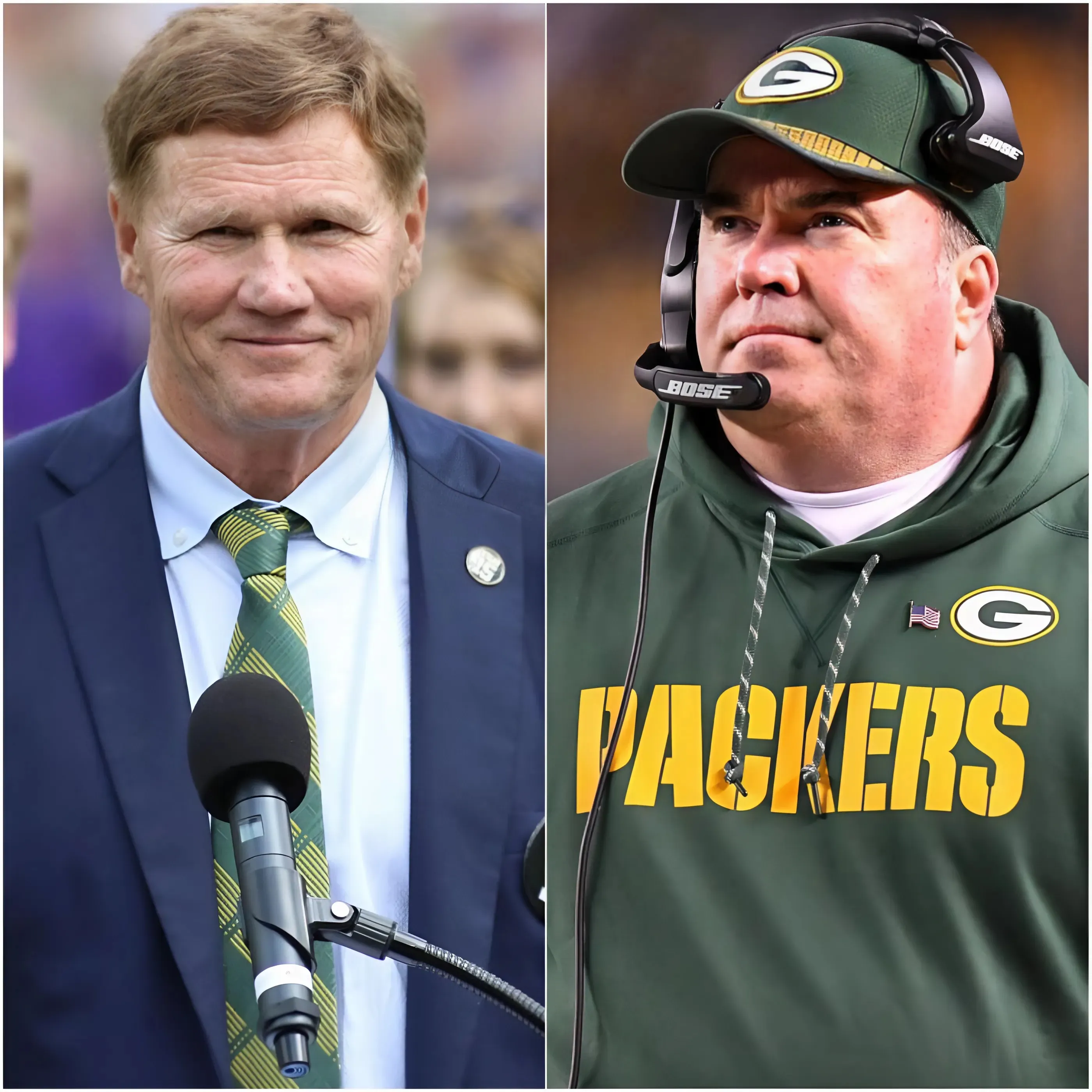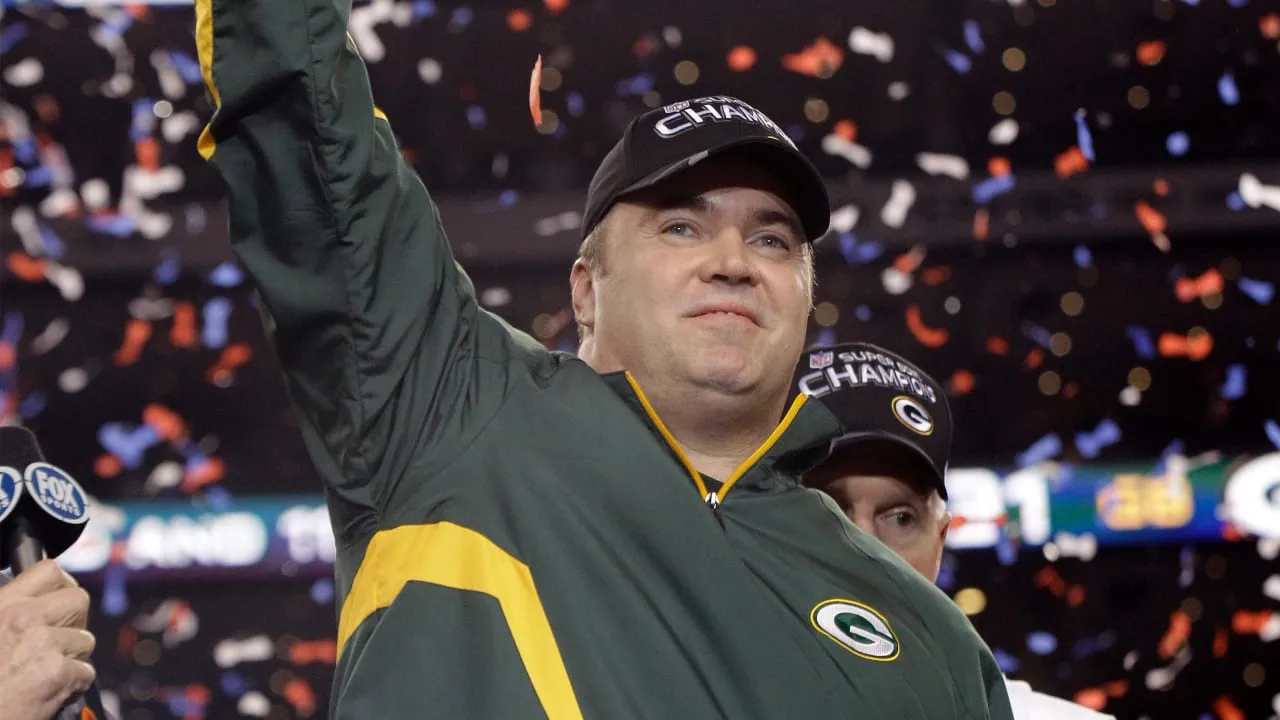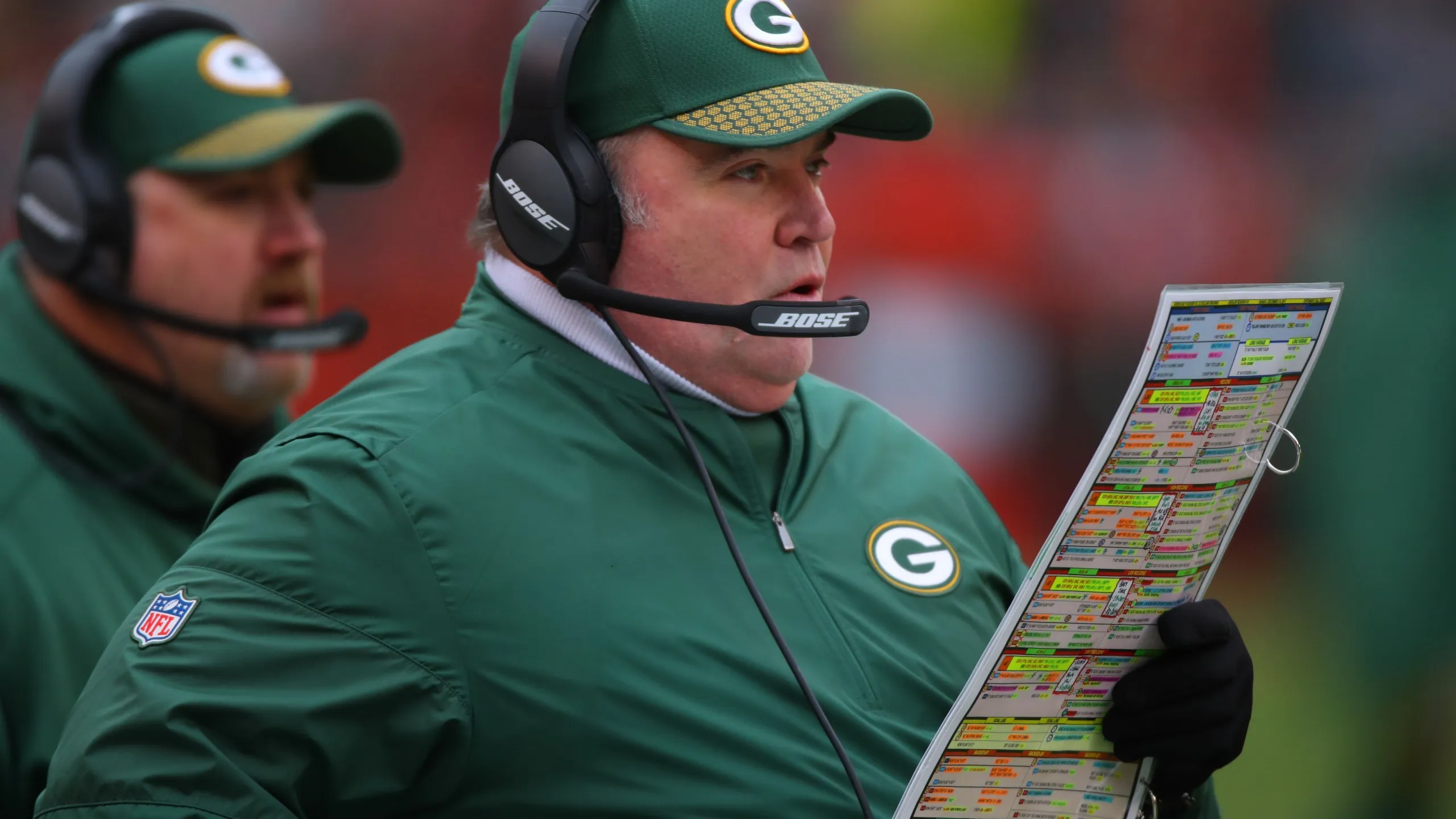In a stunning development that has left the NFL community in disbelief, Green Bay Packers President and CEO Mark Murphy has finalized a monumental $789.5 million deal to appoint former head coach Mike McCarthy as the team’s new General Manager. This unexpected move comes on the heels of the shocking resignation of Head Coach Matt LaFleur, creating a whirlwind of speculation and debate about the future direction of the franchise.

Mike McCarthy, who previously led the Packers to a Super Bowl XLV victory in 2011 and served as the team’s head coach from 2006 to 2018, returns to Green Bay in a dramatically different capacity. His tenure as head coach ended in 2018 amid growing criticism over the team’s performance and his relationship with star quarterback Aaron Rodgers. However, McCarthy went on to coach the Dallas Cowboys, where he experienced mixed success. Now, his return to Green Bay signals a bold and unconventional shift in the Packers’ leadership strategy.
The magnitude of the $789.5 million deal has raised eyebrows across the league, as it represents one of the most significant financial commitments ever made to a general manager in NFL history. Sources close to the organization suggest that Murphy believes McCarthy’s extensive experience and deep understanding of the Packers’ organizational culture make him uniquely qualified to steer the team through this period of transition.
Murphy addressed the media following the announcement, expressing unwavering confidence in McCarthy’s ability to lead the franchise. “Mike has a proven track record of success and a deep connection with the Green Bay Packers organization. We believe his leadership and strategic vision will be instrumental in building a championship-caliber team,” Murphy stated. He also acknowledged the sudden nature of LaFleur’s departure, noting that the decision to bring McCarthy back was made after careful deliberation.

The details surrounding Matt LaFleur’s abrupt exit remain unclear. Reports indicate that internal disagreements and mounting pressure following a string of disappointing playoff performances may have contributed to his decision to step down. LaFleur’s departure shocked both fans and analysts, as he had been instrumental in revitalizing the Packers’ offense and securing multiple playoff appearances during his tenure.
McCarthy’s appointment has sparked mixed reactions among Packers fans. Some supporters view his return as a chance to restore the franchise’s winning tradition, recalling the success of the 2010 season that culminated in a Super Bowl victory. Others, however, remain skeptical, citing McCarthy’s past struggles with adapting to modern offensive strategies and managing key player relationships.
Former Packers quarterback Aaron Rodgers, now with the New York Jets, weighed in on the decision during a recent interview. “It’s definitely a surprising move. Mike knows the organization well, but the GM role is a different challenge. I wish him the best, but it’ll be interesting to see how he approaches it,” Rodgers commented.

McCarthy himself expressed enthusiasm about his new role, emphasizing his commitment to rebuilding the team’s competitive edge. “Green Bay has always been home for me. I’m honored to have this opportunity to return and contribute to the Packers’ legacy in a new way. My focus will be on assembling a team that reflects the toughness, resilience, and excellence that this organization stands for,” McCarthy stated during his introductory press conference.
Industry insiders speculate that McCarthy’s immediate priorities will include hiring a new head coach and addressing key roster decisions ahead of the upcoming NFL Draft. The search for LaFleur’s successor is already underway, with several high-profile candidates reportedly being considered.
The financial scale of McCarthy’s deal also raises questions about the Packers’ long-term strategy and resource allocation. Analysts are debating whether such a significant investment in the general manager position could impact the team’s ability to pursue top-tier talent in free agency. Murphy, however, dismissed these concerns, affirming that the organization remains committed to providing McCarthy with the necessary resources to build a competitive roster.
As the Packers navigate this period of significant change, all eyes will be on McCarthy to see how he handles the immense pressure and expectations that come with his new role. The success or failure of this bold move will likely define the future trajectory of the franchise for years to come.
With the 2024 season approaching, Green Bay’s fanbase is both hopeful and anxious to see how McCarthy’s leadership will shape the next chapter in the Packers’ storied history. One thing is certain: the return of Mike McCarthy to Green Bay marks a daring and potentially transformative moment for one of the NFL’s most iconic teams.